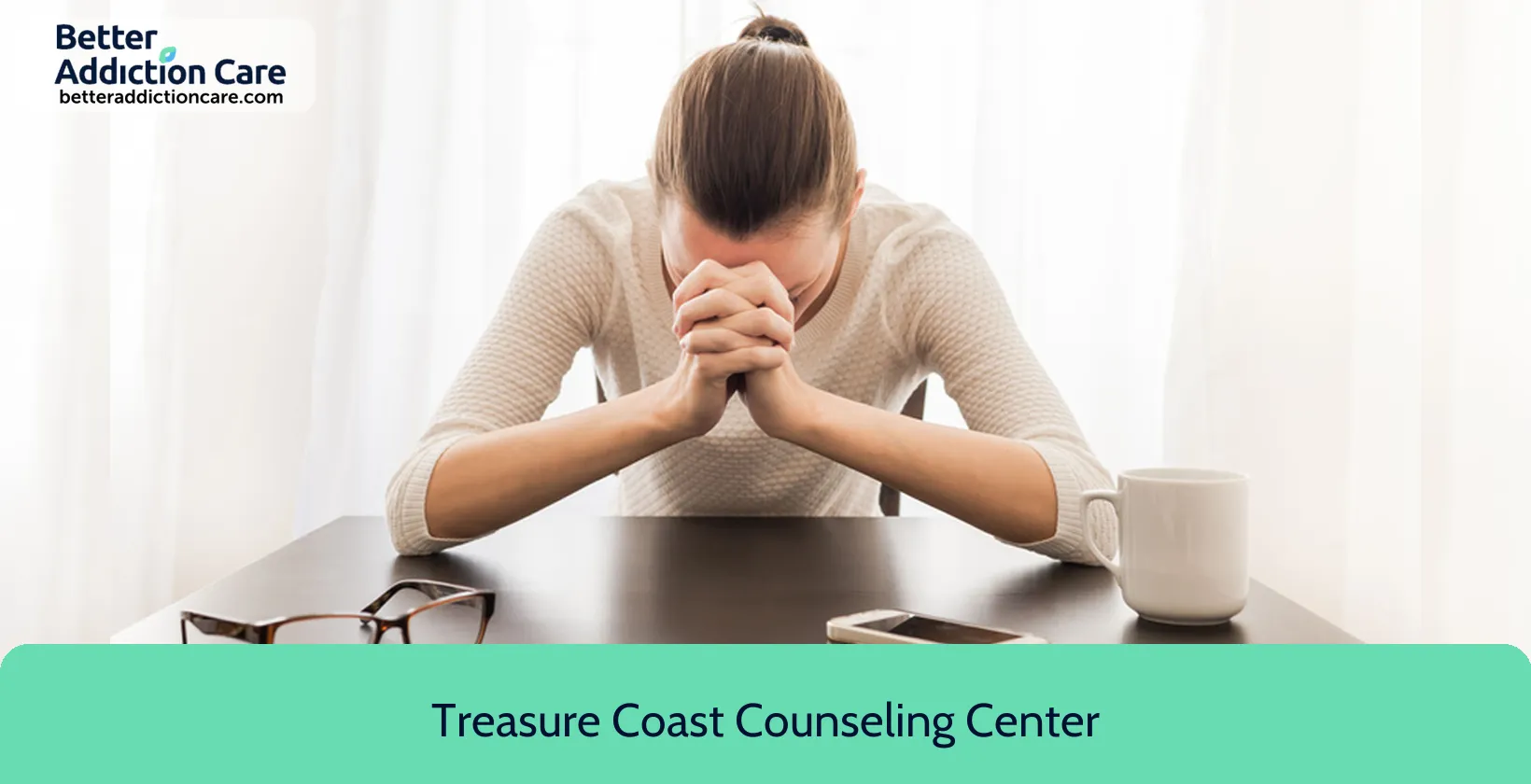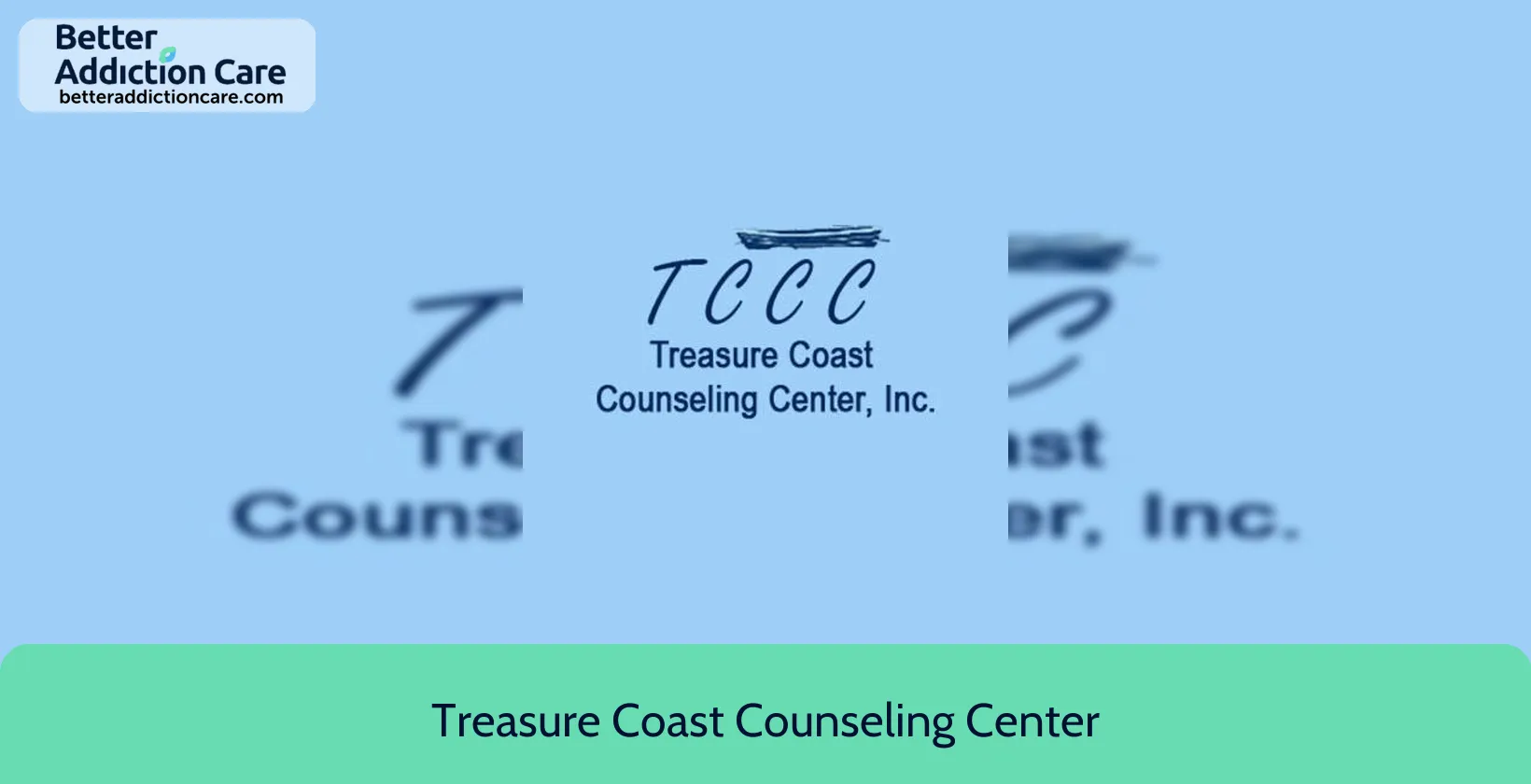Treasure Coast Counseling Center
Overview
Treasure Coast Counseling Center is a mental health treatment center for people seeking treatment near Saint Lucie County. As part of their treatment modalities for recovery, Treasure Coast Counseling Center provides group counseling, trauma-related counseling, and individual psychotherapy during treatment. Treasure Coast Counseling Center is located in Port Saint Lucie, Florida, accepting private health insurance for treatment.
Treasure Coast Counseling Center at a Glance
Payment Options
- Private health insurance
- Cash or self-payment
- State-financed health insurance plan other than Medicaid
- Medicare
- Federal military insurance (e.g., TRICARE)
Assessments
- Comprehensive mental health assessment
- Comprehensive substance use assessment
Age Groups
- Adults
- Children/adolescents
- Young adults
- Seniors
Ancillary Services
- Court-ordered outpatient treatment
- Diet and exercise counseling
- Education services
Highlights About Treasure Coast Counseling Center
6.64/10
With an overall rating of 6.64/10, this facility has following balanced range of services. Alcohol Rehabilitation: 8.05/10, Drug Rehab and Detox: 6.00/10, Insurance and Payments: 6.00/10, Treatment Options: 6.49/10.-
Alcohol Rehabilitation 8.05
-
Treatment Options 6.49
-
Drug Rehab and Detox 6.00
-
Insurance and Payments 6.00
Treatment At Treasure Coast Counseling Center
Treatment Conditions
- Mental health treatment
- Alcoholism
- Opioid Addiction
- Substance use treatment
- Co-occurring Disorders
Care Levels
- Intensive outpatient treatment
- Detoxification
- Outpatient
Treatment Modalities
- Group counseling
- Trauma-related counseling
- Individual psychotherapy
- Cognitive behavioral therapy
- Integrated Mental and Substance Use Disorder treatment
Ancillary Services
Special Programs
- Clients with HIV or AIDS
- Clients who have experienced trauma
Contact Information
Read our Most Recent Article About Drug Addiction
DISCLAIMER: The facility name, logo and brand are the property and registered trademarks of Treasure Coast Counseling Center, and are being used for identification and informational purposes only. Use of these names, logos and brands shall not imply endorsement. BetterAddictionCare.com is not affiliated with or sponsored by Treasure Coast Counseling Center.










